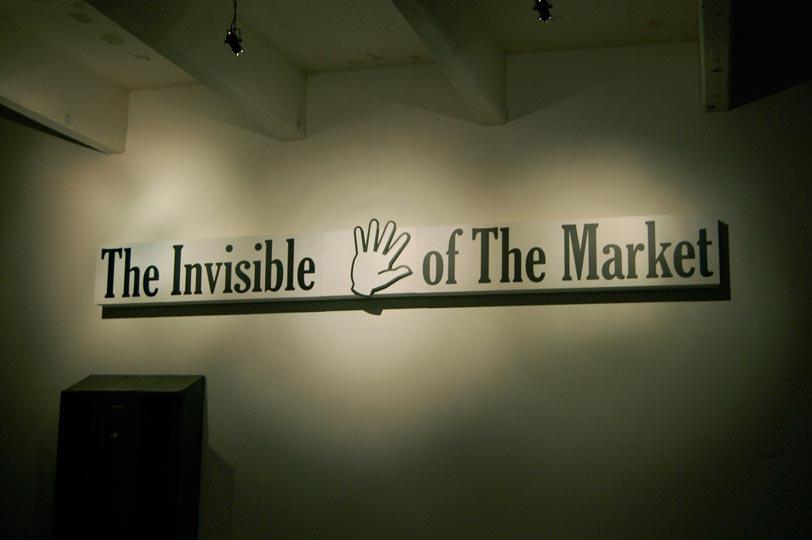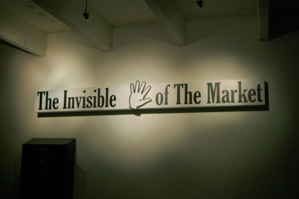According to the great Scotsman’s theory, individuals in a free market economy are guided by their own interests, as though directed by an invisible hand, and their actions constrainedly ensure implementation of interests of other people and society as a whole.
Robert Shiller, the Nobel laureate in economics, writes about this in an article on the Project Syndicate:
Smith was right: the free market produces an unprecedented amount of well-being for individuals and for society as a whole. Yet, we are easy to be manipulated and deceived so the free market nearly effortlessly urges us to buy something that neither society nor we need.
This observation is an important addition to Smith’s theory. That’s about what Shiller wrote in a book, co-authored with George Akerlof, “Phishing for Phools: The Economics of Manipulation and Deception”.
Most of us have suffered from "phishing" (a kind of bank fraud on the Internet). A ‘phool’ is a person not fully aware of the scale of phishing presence. The phool sees isolated examples of phishing, but cannot assess the scams’ level of professionalism, and how their actions affect their lives deeply. Unfortunately, many of us have been phools at least once a life.
Common phishing can affect any market, but the authors’ most important observations relates to the financial market - very important, given the massive boom in the stock real estate markets since 2009 and the high turbulence of global assets in the last month.
Too many optimists learned from bitter experience that asset prices are highly volatile and countless phishing involved in it. Borrowers are lured by questionable mortgages, company are being deprived of all of its assets, accountants misinform investors, financial advisers tell tales of Slumdog Millionaire and the media spread incredible claims.
Yet eventually, not only those, who were fooled, are losers. A series of additional loss occurs when inflated assets are bought with borrowed money. In this case, the fear of bankruptcy and insolvency is hyping a new wave of bankruptcies, increasing fear. Then credit dried up and the economic collapse is here.
The epidemic in the economy as well as in medicine requires immediate and decisive response. The authorities' response to the "Great 1929 Crash" was small and slow, and the global economy plunged into a "dark period," which lasted during the Great Depression in the 1930s and World War II.
The financial crisis of 2007-2009 presaged the same scenario, but this time, the world's governments and central banks intervened quickly and carried out coordinated measures to stimulate the economy. Recovery was weak, but not comparable to the "dark period".
We should be grateful for this. Today, however, some believe that the fiscal and monetary authorities should not have reacted so quickly and decisively during the crisis of 2007-2009. They believe that the main cause of the crisis was lied in the "moral hazard": the riskers expected the government to intervene to protect them if their bets fail, then they went on to even greater risk.
In the authors’ view (supported by a large amount of data), soaring prices generally reflect the "irrational exuberance", added and encouraged by phishers.
The irrationally inspired players did not think about the repayment that they would have received if the authorities intervened to stabilize the economy and to provide credits. Such a scenario had hardly been taken into account in the euphoria preceding the crisis of 2007-2009: those inflated prices was making profit, and buyers "thought" that they do the right thing - even if it was not so.
Unwillingness to recognize the need for immediate intervention in the financial crisis is based on the economics school, which does not account for "irrational exuberance", ignores the aggressive marketing and other realities of the digital technology market.
We need to provide unrestricted freedom of fiscal and monetary authorities to implement decisive steps when the financial turbulence turns into a financial crisis. One "dark period" was more than enough to us.
original by Robert J. Shiller, Project Syndicate
Robert Shiller, the Nobel laureate in economics, writes about this in an article on the Project Syndicate:
Smith was right: the free market produces an unprecedented amount of well-being for individuals and for society as a whole. Yet, we are easy to be manipulated and deceived so the free market nearly effortlessly urges us to buy something that neither society nor we need.
This observation is an important addition to Smith’s theory. That’s about what Shiller wrote in a book, co-authored with George Akerlof, “Phishing for Phools: The Economics of Manipulation and Deception”.
Most of us have suffered from "phishing" (a kind of bank fraud on the Internet). A ‘phool’ is a person not fully aware of the scale of phishing presence. The phool sees isolated examples of phishing, but cannot assess the scams’ level of professionalism, and how their actions affect their lives deeply. Unfortunately, many of us have been phools at least once a life.
Common phishing can affect any market, but the authors’ most important observations relates to the financial market - very important, given the massive boom in the stock real estate markets since 2009 and the high turbulence of global assets in the last month.
Too many optimists learned from bitter experience that asset prices are highly volatile and countless phishing involved in it. Borrowers are lured by questionable mortgages, company are being deprived of all of its assets, accountants misinform investors, financial advisers tell tales of Slumdog Millionaire and the media spread incredible claims.
Yet eventually, not only those, who were fooled, are losers. A series of additional loss occurs when inflated assets are bought with borrowed money. In this case, the fear of bankruptcy and insolvency is hyping a new wave of bankruptcies, increasing fear. Then credit dried up and the economic collapse is here.
The epidemic in the economy as well as in medicine requires immediate and decisive response. The authorities' response to the "Great 1929 Crash" was small and slow, and the global economy plunged into a "dark period," which lasted during the Great Depression in the 1930s and World War II.
The financial crisis of 2007-2009 presaged the same scenario, but this time, the world's governments and central banks intervened quickly and carried out coordinated measures to stimulate the economy. Recovery was weak, but not comparable to the "dark period".
We should be grateful for this. Today, however, some believe that the fiscal and monetary authorities should not have reacted so quickly and decisively during the crisis of 2007-2009. They believe that the main cause of the crisis was lied in the "moral hazard": the riskers expected the government to intervene to protect them if their bets fail, then they went on to even greater risk.
In the authors’ view (supported by a large amount of data), soaring prices generally reflect the "irrational exuberance", added and encouraged by phishers.
The irrationally inspired players did not think about the repayment that they would have received if the authorities intervened to stabilize the economy and to provide credits. Such a scenario had hardly been taken into account in the euphoria preceding the crisis of 2007-2009: those inflated prices was making profit, and buyers "thought" that they do the right thing - even if it was not so.
Unwillingness to recognize the need for immediate intervention in the financial crisis is based on the economics school, which does not account for "irrational exuberance", ignores the aggressive marketing and other realities of the digital technology market.
We need to provide unrestricted freedom of fiscal and monetary authorities to implement decisive steps when the financial turbulence turns into a financial crisis. One "dark period" was more than enough to us.
original by Robert J. Shiller, Project Syndicate






